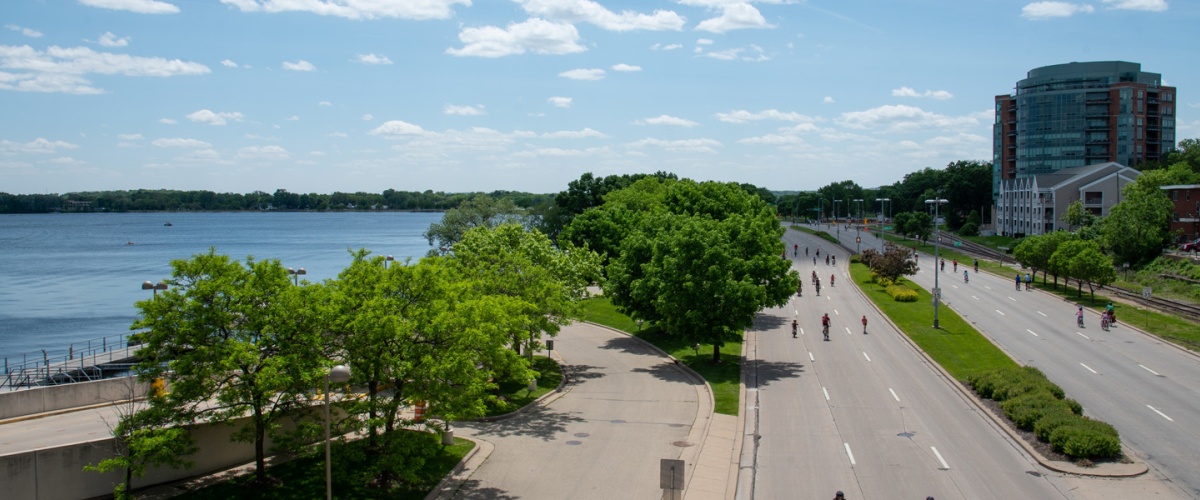Mayor’s Operating Budget Focuses on Building a Safer Community, Healthier Neighborhoods, and Opportunities for Youth
Archived News Release
This news release is archived and might not be accurate anymore.
In this year’s Operating Budget, Mayor Satya Rhodes-Conway’s focus is on the programs and services that build a safer community, build healthier neighborhoods and create opportunities for youth.
The City’s operating budget funds the numerous services, programs, and skilled staff that sustain high quality City services and help keep Madison strong. This operating budget released today is in addition to the 2023 Executive Capital Budget, released in September, which funds infrastructure, buildings and other capital investments.
“My budget keeps a focus on the bottom line and fiscal restraint while meeting the needs of a growing city that is still recovering from the pandemic. I am happy we are able to grow the innovative CARES program, expand services that support reproductive health, invest in our youth and continue to build a strong, resilient and heathy Madison,” said Mayor Rhodes-Conway.
Building a Safer Community
Everyone deserves to feel safe in their home, their neighborhood and their community. The City uses a range of tools to improve safety, including investing in mental health response, violence prevention, youth employment and housing affordability. The executive operating budget funds:
- An expansion of the Community Alternative Response Emergency Services (CARES) program, which responds to 911 calls for behavioral health emergencies. This program started in downtown Madison for only 8 hours a day, 5 days a week. The 2023 budget adds funds to grow the program to a citywide, 12 hours a day and 7 days a week service operating out of two locations.
- Continued services from Public Health’s Violence Prevention Team that does evidence-based work aimed at reducing violence in our community. This team will be hiring new staff focused on preventing crime in the downtown entertainment district and mediating conflict across the city.
- The creation of a full-time City Emergency Manager for the first time. This will allow us to be better prepared for all manner of emergencies, including an increasing number of climate-related emergencies.
Building Healthy Neighborhoods
Much of what the City does is aimed at supporting healthy families and building healthy neighborhoods. The executive operating budget funds:
- A significant expansion of Public Health’s reproductive health services clinic, including the provision of long-acting reversible contraceptives that provide long-term pregnancy prevention.
- Continued staffing to administer the federally-funded rental assistance program, which has helped more than 7,000 Madison households remain stably housed over the past 18 months.
- A new Madison Customer Assistance Program (Mad-CAP). Pending approval from the WI Public Service Commission, this innovative program would offer financial assistance to Madison’s lower income households and help bring down the cost of the Municipal Services bill, which includes utilities (water, sewer, stormwater and landfill remediation) and special charges (resource recovery and urban forestry).
Creating Opportunities for Youth
Investing in young people is investing in our future. This operating budget funds:
- A program manager for the Parks Alive! program, which debuted in summer 2022 and is designed to help build relationships between young people and adults, and build trust between residents, City staff and other neighborhood stakeholders.
- A $250,000 increase in funds for the Community Development Division to expand programs that combine employment and internship opportunities with mentoring and skills development. Young participants earn a paycheck, gain leadership skills, and participate in financial empowerment education. These funds will be used specifically to reach a group of young adults, aged 18-26, who have are not adequately served by existing programs.
“With these investments and many more, the City continues the efforts begun in the Capital budget to build a safer community, healthier neighborhoods and create opportunities for our youth.” said Mayor Rhodes-Conway.
Balancing the Budget
The budget increases General and Library Fund expenditures by $21.6 million (6 percent) to a total of $381.9 million. About half of this increase is associated with one-time spending, including a $1,000 payment to employees funded from surpluses in the City’s life and wage insurance programs, and 2023 homeless shelter operating costs supported by one-time American Rescue Plan Act (ARPA) funds. Debt service for City infrastructure and other capital projects is increasing by about $5.5 million (10 percent) and represents about a quarter of the overall increase.
Balancing the 2023 budget required replacing $13.1 million of one-time ARPA funding used in the 2022 budget and funding the increase in expenditures described above. Local City revenues (e.g., building permits, ambulance fees, room taxes, investment income) are bouncing back from the economic effects of the pandemic with an increase of 14 percent. The closure of tax increment districts, particularly the hugely successful downtown Tax Increment District 25, is providing a one-time boost in revenue of $6.9 million. State aid is up 3 percent ($1.2 million). The property tax levy will increase by $14.2 million (5.5 percent) to $273.3 million based on the added property value of new construction, attachment of property from the Town of Madison and debt service costs.
The Mayor’s Executive Budget will be introduced at Common Council tonight and will be discussed at City Finance Committee meetings planned for October, with final Common Council action in November. The full 2023 Executive Operating Budget can be viewed at www.cityofmadison.com/finance/budget

